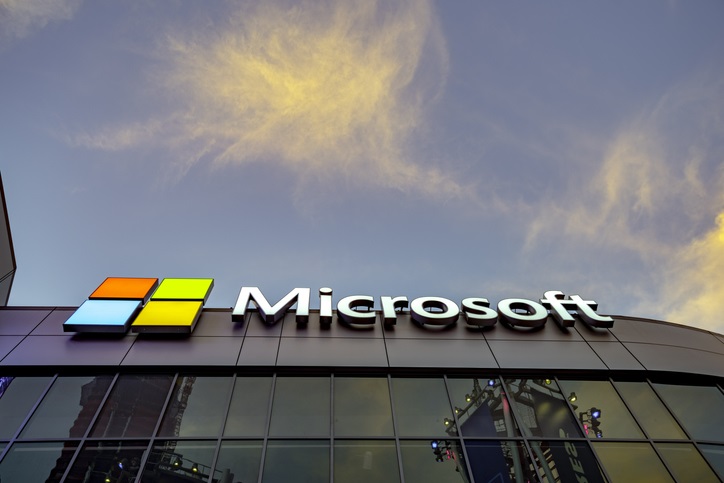
ii view: Microsoft results put shares in the clouds

By Keith Bowman from interactive investor.
Technology behemoth Microsoft is now far more than Windows and Word, evidenced by latest results.
Fourth-quarter results ending 30 June 2019
- Revenue up 12 per cent to $33.7 billion
- Operating income up 20 per cent to $12.4 billion
- Returned $7.7 billion to shareholders
Chief executive Satya Nadella said:
“It was a record fiscal year for Microsoft, a result of our deep partnerships with leading companies in every industry. I’m proud of what we have accomplished over the last 12 months, and I’m energized by the tremendous opportunity ahead.”
ii round-up:
Founded in 1975, Microsoft’s (NASDAQ:MSFT) first operating system was used on IBM personal computers in 1981. It listed on the US stock exchange in 1986.
Headquartered in Redmond USA, it employs over 140,000 people. Its brands including Windows, Office 365, Xbox, Bing and LinkedIn are recognised globally. Windows 10 is now active on more than 800 million devices. LinkedIn, the social platform for professionals, was acquired in 2016 for $27 billion.
Competing against Google parent Alphabet (NASDAQ:GOOGL) and Amazon (NASDAQ:AMZN), its Azure cloud computing server business has become a key driver of its fortunes in recent years. Global demand for data storage has soared as the internet has effectively allowed the outsourcing of corporate data storage.
Fourth-quarter and full-year results both broke records, and the quarterly number beat analyst expectations, helped significantly by the cloud data business. In the fourth quarter alone, commercial cloud revenue jumped by 39 per cent year-over-year to $11 billion, making it Microsoft’s strongest commercial quarter ever.
Sales for its Productivity and Business Processes division, which includes LinkedIn, rose by 14 per cent, while sales for Personal Computing were up a more modest 4 per cent. On the downside, Gaming sales declined by 10 per cent, with Xbox software and services revenue down 3 per cent.
Microsoft stock rose sharply in US after-hours trading.
ii view:
Seemingly having previously lost its way with Windows phone software, Microsoft has now revived its fortunes. The arrival of the current chief executive in 2014 has had a galvanising effect, providing renewed clarity of purpose. Its move to build on its cloud server business has paid off handsomely. Enthusiasm for the shares this year had already revived Microsoft’s share price, too, and these numbers have propelled it to top of the US stock market’s biggest companies, now worth over $1 trillion, more than Apple (NASDAQ:AAPL) and Amazon.
For investors, Microsoft shares have regained their former growth tag, evidenced by a current forward price/earnings (PE) ratio of just under 30, which is about 10 points above its 10-year average. Shareholder returns, and eight consecutive years of dividend growth should also not be forgotten, although dividend income is not what you buy Microsoft for. This well-run tech company gives investors exposure to parts of the economy and industry catalysts that are difficult to find elsewhere. For many investors it remains a must-own stock.
Positives:
- Annual commercial cloud revenue of $38 billion make it the world’s largest
- Windows operating system holds dominant market position
- Returned $7.7 billion in Q4 via share repurchases and dividends
Negatives:
- Gaming sales down 10 per cent in Q4
- Google and Apple working on own video game streaming services
- Political concern about size and power of technology companies
The average rating of stock market analysts:
Buy
These articles are provided for information purposes only. Occasionally, an opinion about whether to buy or sell a specific investment may be provided by third parties. The content is not intended to be a personal recommendation to buy or sell any financial instrument or product, or to adopt any investment strategy as it is not provided based on an assessment of your investing knowledge and experience, your financial situation or your investment objectives. The value of your investments, and the income derived from them, may go down as well as up. You may not get back all the money that you invest. The investments referred to in this article may not be suitable for all investors, and if in doubt, an investor should seek advice from a qualified investment adviser.
